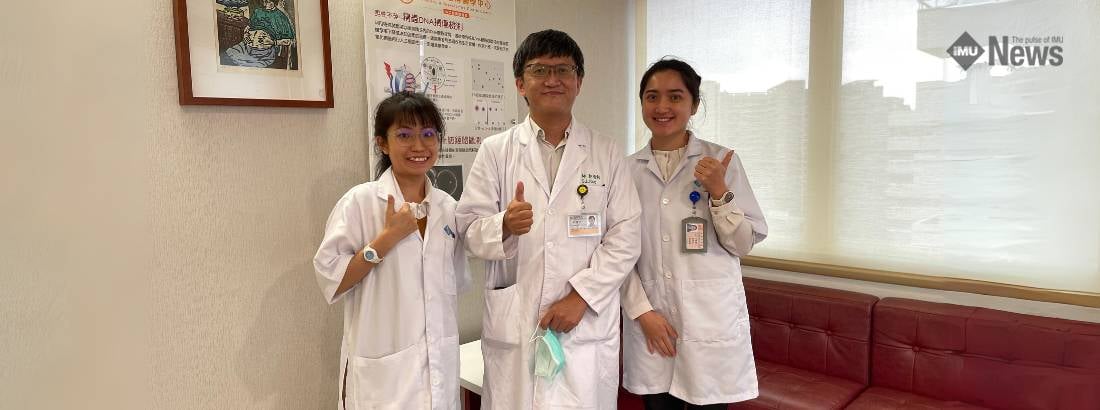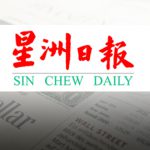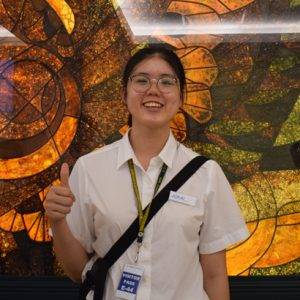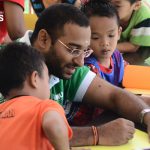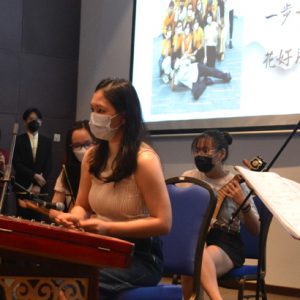Our journey from Malaysia to Chang Gung Memorial Hospital (CGMH) in Taiwan was truly transformative. As final-year students, this international clinical placement offered us profound insights into the healthcare practices, culture, and environment at CGMH. In this article, we will share our experiences, interactions, key learnings, and the lasting impact of our time there.
Taiwan presented us with a unique cultural and linguistic landscape. The fact that Chinese was the primary language made the transition easier, given that it aligned with our mother tongue. However, we quickly observed that Taiwanese culture embraced a faster-paced lifestyle, a stark contrast to the more relaxed Malaysian way of living. Initially, this raised concerns about adaptation. Fortunately, the staff, practitioners, and fellow students at CGMH were incredibly welcoming, patient, and helpful, which facilitated a smooth transition.
One of the most significant differences we encountered was in the healthcare system. Taiwan’s healthcare system seamlessly integrates Chinese medicine, which is covered by the National Health Insurance. Practitioners are actively encouraged to treat a wide range of diseases, including chronic rare conditions and cancer, with enticing incentives. Although our two-week placement only allowed us to scratch the surface, the experience broadened our understanding of diverse healthcare systems and their potential applications.
Our time at CGMH provided us with the privilege of interacting with Chinese medicine specialists. These experts not only shared their extensive clinical experiences but also imparted invaluable theoretical knowledge and the essential attitudes required in clinical practice. Their guidance ignited a deeper passion for Chinese medicine and a stronger sense of purpose as aspiring practitioners.
Highlights of Our Experience at Chang Gung Memorial Hospital
During our attachment from 9-22 July, we had the opportunity to rotate through multiple departments, including Gynaecology, Internal Medicine, and Acupuncture and Traumatology. What made our experience truly exceptional was the generosity of the practitioners who shared their wealth of clinical knowledge with us.
We were also fortunate to be accompanied by senior Traditional Chinese Medicine (TCM) students from Chang Gung University, who provided valuable guidance during our clinical sessions.
A particularly memorable visit took us to the Chang Gung TCM Teaching and Learning Museum. Here, we explored an ancient Chinese medicine herb storage shelf and engaged with a state-of-the-art VR acupuncture simulator, designed to enhance our knowledge of anatomy and acupuncture techniques.
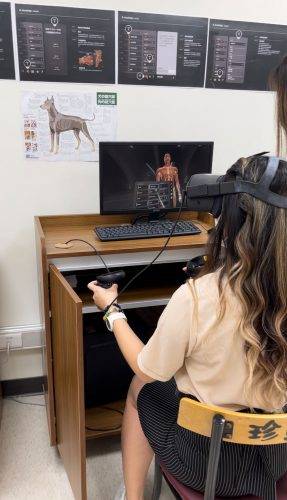
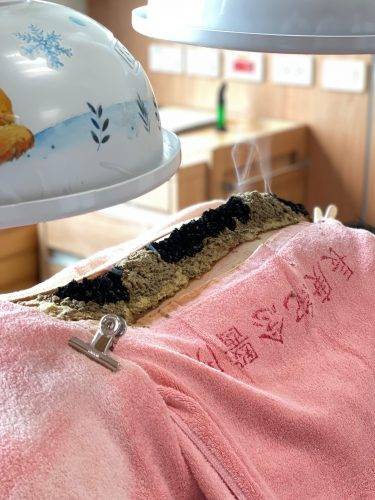
Witnessing a “long snake moxibustion” demonstration was both fascinating and educational, as it was our first time observing this traditional practice. What left a lasting impression was the practitioner’s remarkable care and professionalism during the treatment.
Additionally, we had the privilege of touring the Chang Gung Hospital CM dispensary room and decoction room.
The systematic and advanced approach to preparing and dispensing medication left us in awe. We were particularly impressed by locally-made topical medications, tea bags, and mosquito repellents.
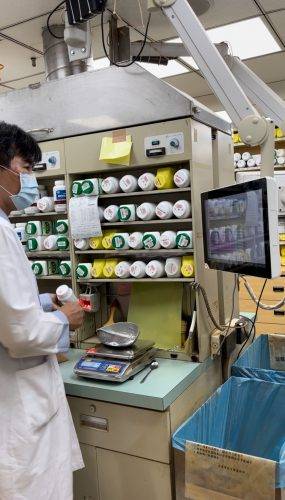
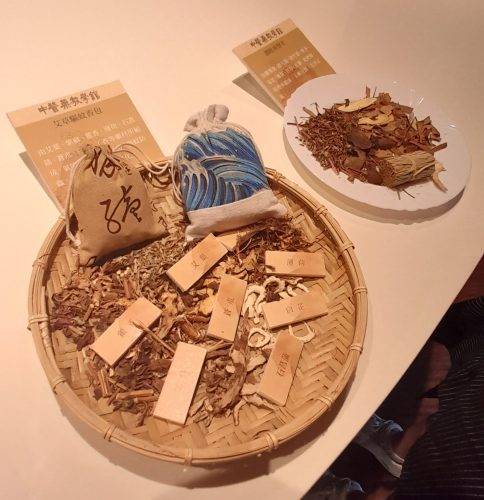
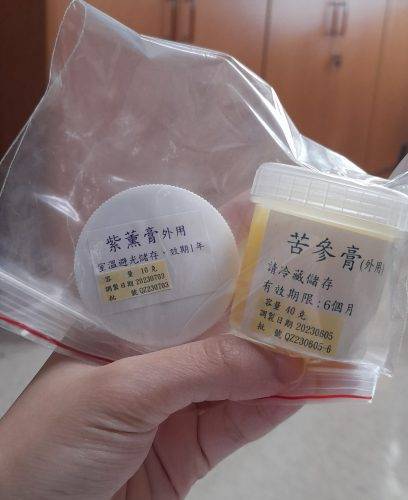
Differences Between CGMH and Previous Clinical Experiences:
Chang Gung Memorial Hospital stood out as a well-organised institution with a comprehensive range of specialist departments, encompassing both modern and traditional Chinese Medicine. This contrasted significantly with many hospitals and clinics in Malaysia. CGMH not only offered outpatient Chinese medicine consultations but also provided Chinese medicine treatments for inpatients, offering us a broader scope to observe and interact with diverse patients.
Furthermore, CGMH placed a strong emphasis on clinical research studies, including investigations into new Chinese medication formulas and the effects of Chinese medicine on specific diseases. Although we didn’t engage in the entire research process, we had the unique opportunity to witness practitioners interviewing potential research participants. Additionally, the hospital’s research involved a comprehensive range of modern medical techniques, such as blood tests and imaging studies, which differed from our experiences at our home institution, IMU.
Challenges Encountered and Overcoming Them:
At the outset, adapting to Taiwan’s healthcare system posed a significant challenge. Understanding the practitioner’s consultation and treatment processes felt daunting. However, our eagerness to learn and the practitioners’ willingness to share their expertise helped us overcome these initial hurdles. Senior interns from Taiwan universities played a pivotal role in clarifying doubts and explaining procedures when practitioners were occupied. To maximize our learning, we actively observed, listened, asked questions, and engaged with both practitioners and seniors. We also inquired about teaching methods and study materials used in TCM education in Taiwan, further enriching our understanding.
Key Learnings and Insights:
Our international placement at CGMH enriched our knowledge in several ways. We gained insights into the integration of Chinese medicine into a national healthcare system, a model that could potentially be adopted in other countries. The experience also underscored the importance of empathy, patience, and professionalism in healthcare practice.
Impact on Future Medical Practice and Career:
This international exposure has left an indelible mark on us. We now possess a broader perspective on healthcare systems, an enhanced appreciation for our own culture, and a deeper understanding of Chinese medicine. These insights will undoubtedly shape our future medical practice and careers, making us more adaptable and compassionate healthcare professionals.
Memorable Patient Experience:
A particularly memorable patient encounter highlighted the importance of maintaining professionalism and empathy. Despite a challenging patient interaction, the practitioner remained calm, patient, and empathetic, ultimately diffusing the situation. This experience taught us the value of unwavering professionalism, even in the face of adversity, reinforcing our commitment to our future patients.
Conclusion:
Our journey to Chang Gung Memorial Hospital in Taiwan was more than just an international clinical placement; it was a profound learning experience. Our adaptation to a new culture, understanding of Taiwan’s healthcare system, interactions with local professionals, key learnings, and memorable patient encounters have collectively shaped us into more empathetic and adaptable future healthcare practitioners. This international exposure serves as a testament to the transformative power of cross-cultural medical experiences.
Written by Tong Rei Mei and Yee Shu Shuen from IMU Chinese Medicine programme, Cohort CM119.
Guided by Sin Yen Suan, IMU Chinese Medicine Department.




